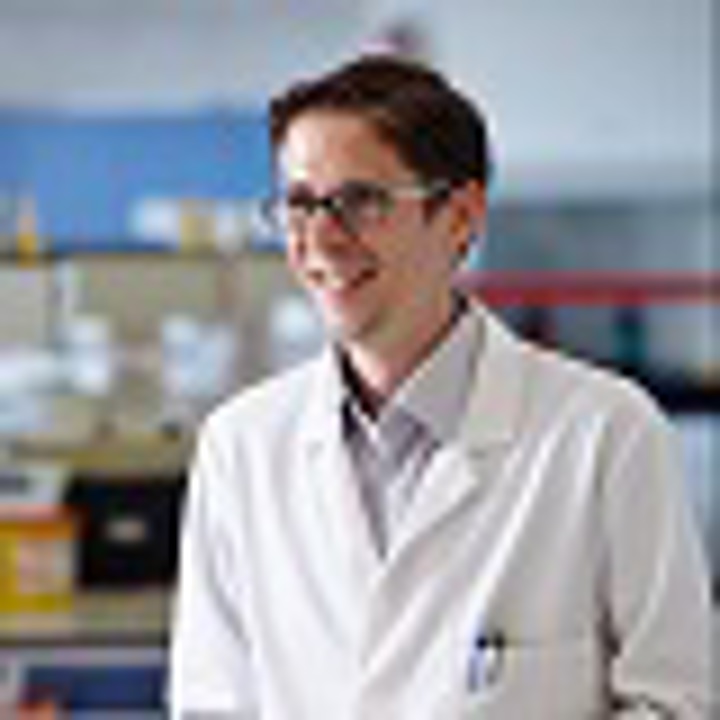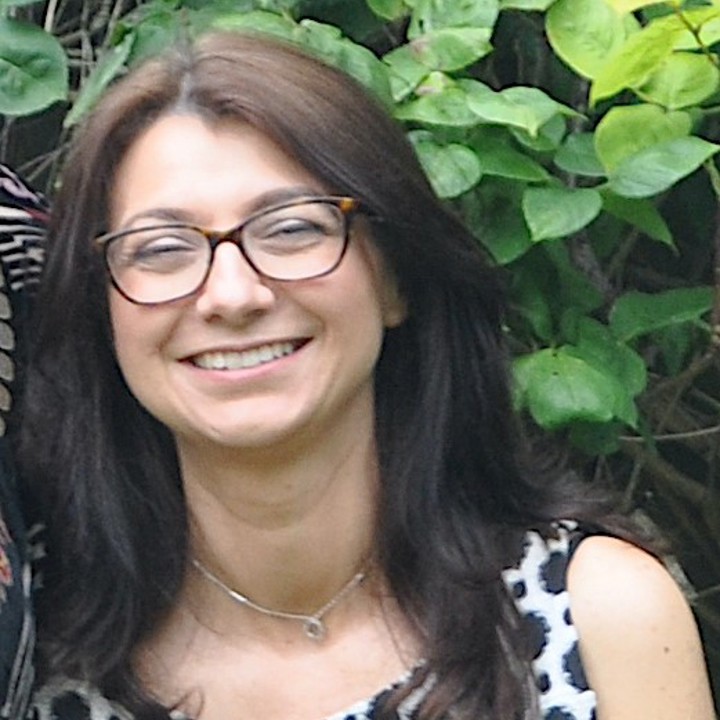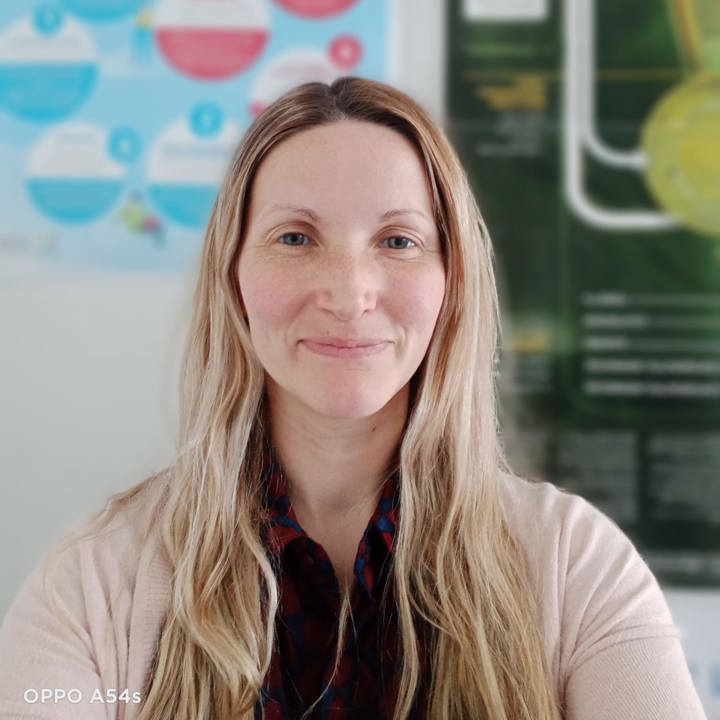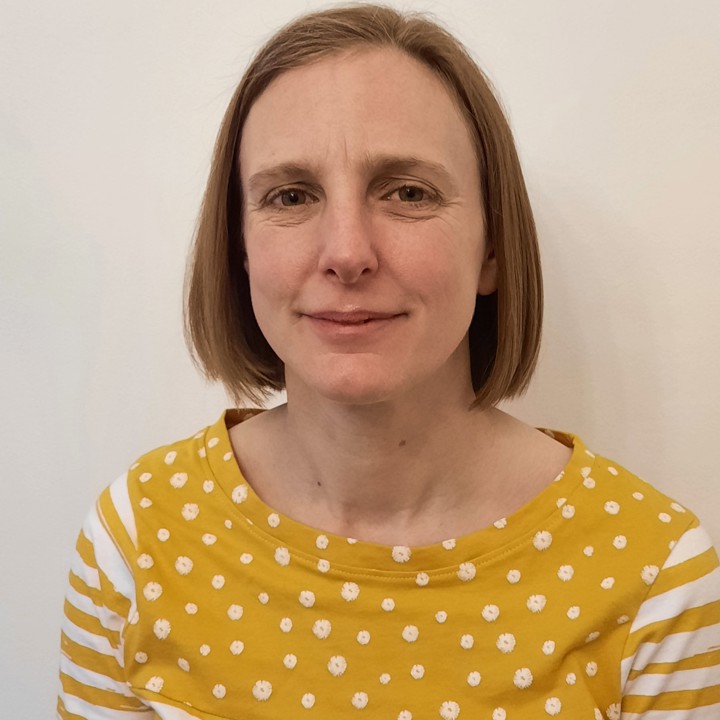
Education, Training and Public Engagement Committee
The Education, Training and Public Engagement Committee works to foster and support the teaching and learning of molecular biosciences from age 15 upwards.
Terms of Reference
Education, Training and Public Engagement Committee
10 members

Professor David Smith
Professor David Smith

David Smith is a Professor of Bioscience Education at Sheffield Hallam University. He teaches fundamental biochemistry to undergraduate and postgraduate students and won the Royal Society of Biology HE Educator of the Year Award in 2019 for innovative teaching practices. He is a National Teaching Fellow and a Principal Fellow of the Higher Education Academy. David collaborates with others to develop and disseminate teaching practices within his university and across the sector in learning, teaching, and assessment groups. The current focus of his work is on the use of generative AI and technology-enhanced learning methods in the classroom and laboratory.
David also conducts biomolecular research that combines protein chemistry, cell culture, and mass spectrometry to study the molecular basis of Parkinson's disease and cancer spheroid models. His studies are centered on developing 3D cell culture models and investigating these through proteomics, metabolomics, and imaging technologies.

Dr Jonathan Mueller
Dr Jonathan Mueller
Dr Mueller investigates the biochemical modulation of hormone action. Specifically, he studies the dynamic sulfation and de-sulfation of steroid hormones. Jon earned a Biochemistry degree with Distinction from Martin Luther University Halle-Wittenberg, Germany. He did a protein-biophysical PhD at Max Planck Institute Dortmund, followed by post-doctoral training in Essen, Germany and at the National Institute for Medical Research in London (now part of the Crick). Jon joined the University of Birmingham in 2012, first as Marie Curie Senior Research Fellow, then as Lecturer and Assistant Professor in Endocrine Biochemistry.
Jon holds Senior-Fellowship of Advance-HE (SFHEA); he champions professionalism in teaching and drives teaching innovation in fair and authentic assessments as well as inclusive teaching. Jon is a visible role model for LGBT+ in STEM and for mental well-being of students and staff. He is EDI lead for his institute.

Dr Mandy Nicolle
Dr Mandy Nicolle
Mandy graduated from the University of Aberdeen with a BSc (Hons) in Biochemistry and a PhD in Molecular Biology. She left academia in 2009 to start a career in the biotech sector as a graduate intern for Green Biologics, a bio-based renewable chemicals company, and spent 10 years developing and applying clostridial engineering tools to commercial applications. In 2019 she became head of biology research for Biocleave, overseeing development of a novel host to produce recombinant proteins. She is passionate about developing the next generation of scientists and coordinates Biocleave’s apprenticeship and work experience programmes. She is currently co-developing a training workshop for the Biochemical Society that focuses on providing students with the transferrable skills needed to succeed in industry-based roles.
Mandy is currently on leave from the Committee.

Dr Giulia Getti
Dr Giulia Getti

Giulia’s research interest focuses on infectious diseases as well as pedagogy. Giulia graduated from the University of Perugia, Italy, in 2000 with a degree in Biological Science, specialising in Microbiology and Molecular Biology. She worked as a research assistant at Perugia University before obtaining her PhD from the University of Greenwich, followed by a post-doctoral position at the University of East London. Giulia joined the University of Greenwich in 2008 as a Senior Lecturer, then associate Professor in Microbiology.
Giulia is a Senior fellow of the higher academy of education and is a member of various groups working towards enhancing students’ experience and learning such as as of the Technology Enhanced Learning and Teaching (TELT) Group, Curriculum Framework: Inclusivity working group.

Dr Alice Robson
Dr Alice Robson
Alice is a teaching-focussed academic at the University of Bristol with over 10 years of experience lecturing in higher education. Her main interests are embedding employability skills in the curriculum and developing students as researchers. More recently, she has been involved in projects to decolonise and diversify the biomedical sciences curriculum.
After completing a degree in Natural Sciences (Biochemistry) at Cambridge, Alice moved to Bristol to study for a PhD and then postdoctoral research with Prof Ian Collinson on protein translocation in bacteria. She continued working on structure-function relationships in protein complexes as a lecturer at Bristol. She then moved into a teaching-focussed position at Queen Mary University of London, working on their transnational Joint Programme with Nanchang University in China. Returning to Bristol in 2016 she took up her current role, where she runs group-based research projects and a module that develops employability and research skills, as well as a broad portfolio of teaching across the Biochemistry programmes. She is the Careers and Employability lead for Biochemistry, working closely with colleagues in the Careers Service to embed employability skills across the programme.

Dr Tim Green
Dr Tim Green

Tim has a research background in recombinant expression and structure-function studies of ligand-gated ion channels. His focus is now on teaching biochemistry to medical students. He graduated from the University of Sheffield with a BSc in Biochemistry and Chemistry and a PhD in Biochemistry. He then undertook postdoctoral research at the MRC Centre for Protein Engineering in Cambridge and The Salk Institute in La Jolla, USA. His first academic position was as Lecturer in the University of Liverpool department of Pharmacology and he moved to his current position at the Lincoln Medical School in 2019.

Dr William Andrews
William graduated from Queen’s University Belfast with a BSc in Biochemistry and a PhD in RNA polymerase I biochemistry. Following this he completed a PGCE in secondary science education, before starting post-doctoral training. William began his teaching career as a lecturer of chemistry in 2016, and has been teaching A-levels, BTEC (levels 3-5) and foundation degree courses at Belfast Metropolitan College ever since. Given the unknown impact of COVID-19 on further education students he completed a MA (education) at the University of Buckingham in 2021. Alongside his teaching work he is a registered STEM ambassador, regularly volunteering at a number of public and school outreach activities each year.

Dr Emma Hargreaves
Dr Emma Hargreaves

Dr Emma Hargreaves completed her first degree in Biochemistry with a year in Industry, graduating in 2003 from the University of Kent. Emma went on to complete a PhD studying the emerging pharmacology of orphan GPCRs in the Clinical Pharmacology Group at the University of Cambridge. In 2020 Emma became a Lecturer in the School of Biosciences at the University of Kent.
Emma has published and presented nationally and internationally and her research has focused on control of mRNA translation during protein production in mammalian cells. In addition to her research interests, Emma contributes to teaching within the school and is a Fellow of the Higher Education Academy. Emma is the Digital and Blended Learning Lead for the Division of Natural Sciences and the Public Engagement Coordinator for the School of Biosciences.

Dr Jennifer Platt-Skerry
Dr Jennifer Platt-Skerry

Jennifer grew up in St.Helens and attended Cowley High, progressing to the University of Leeds, where she studied joint honours in Medical Microbiology and Zoology (I class).
Jennifer went straight into employment for the NHS at Manchester Royal Infirmary. Here she worked in the Health Protection Agency Vaccine Evaluation Labs, researching new vaccines against Meningitis causing microbes.
Jennifer then undertook her PhD under the supervision of Professor Rob Beynon and Professor Jane Hurst, in the Protein Function Group and Mammalian Behaviour and Evolution Group at the University of Liverpool. The PhD called on skills from the joint nature of Jennifer’s degree, as she used Analytical Protein Chemistry techniques such as Mass Spectrometry, to try to investigate how mice use proteins in their urine to communicate with one another.
During her PhD, Jennifer undertook a short teaching placement at a local high school, as part of the 'Student Associate Scheme', before taking her GTP. Jennifer has since worked as a Chemistry teacher, STEM co-ordinator and now course leader of Applied Science at Winstanley college, Wigan.

Dr Emily Flack
Dr Emily Flack





